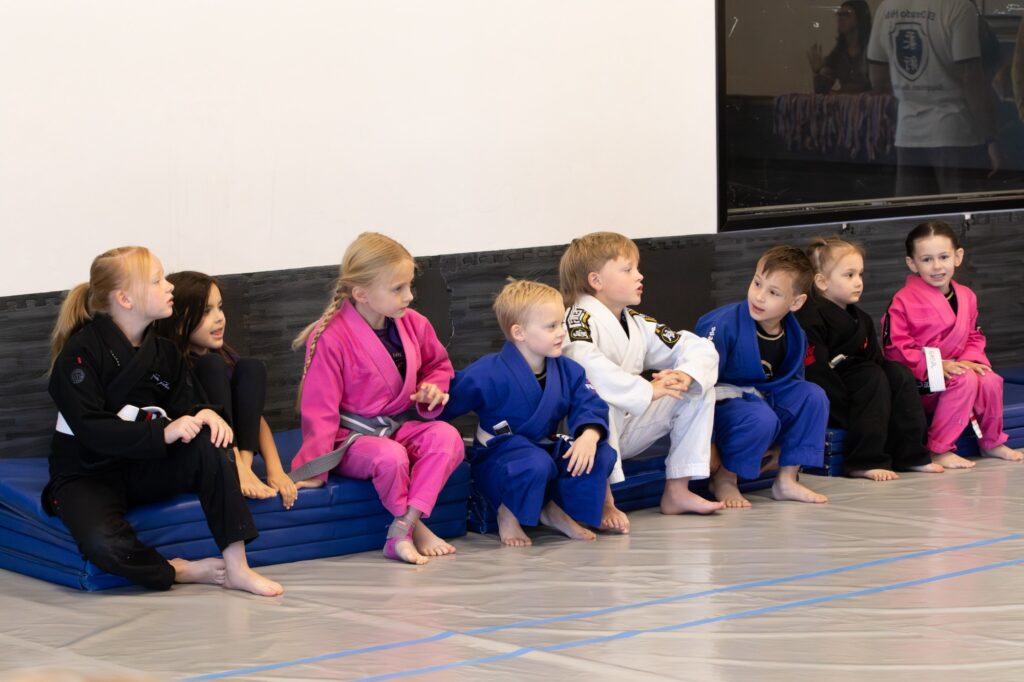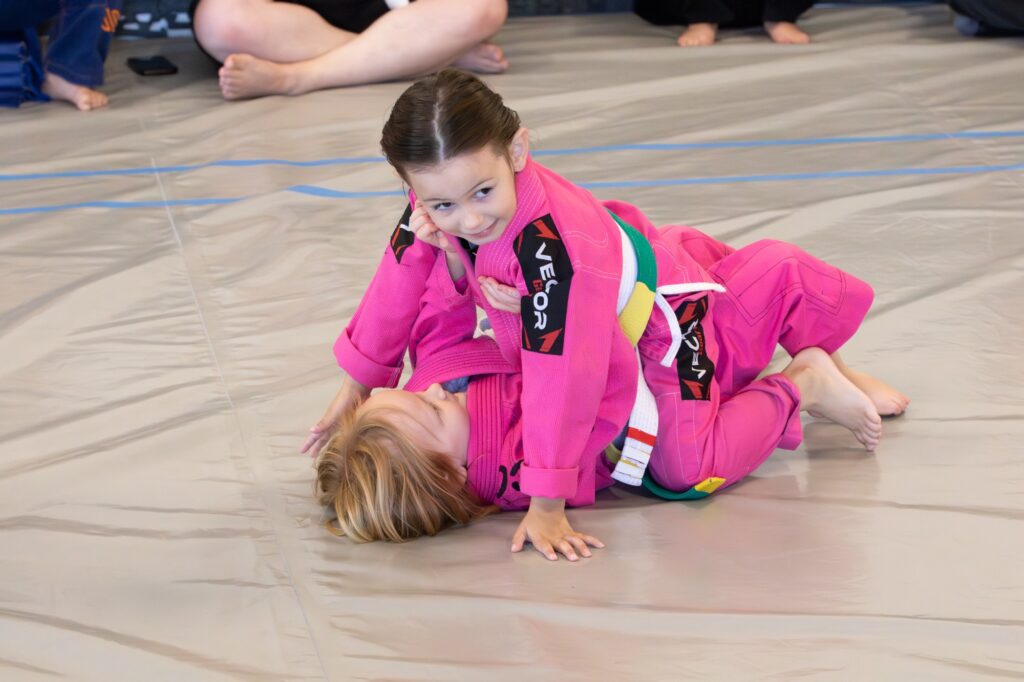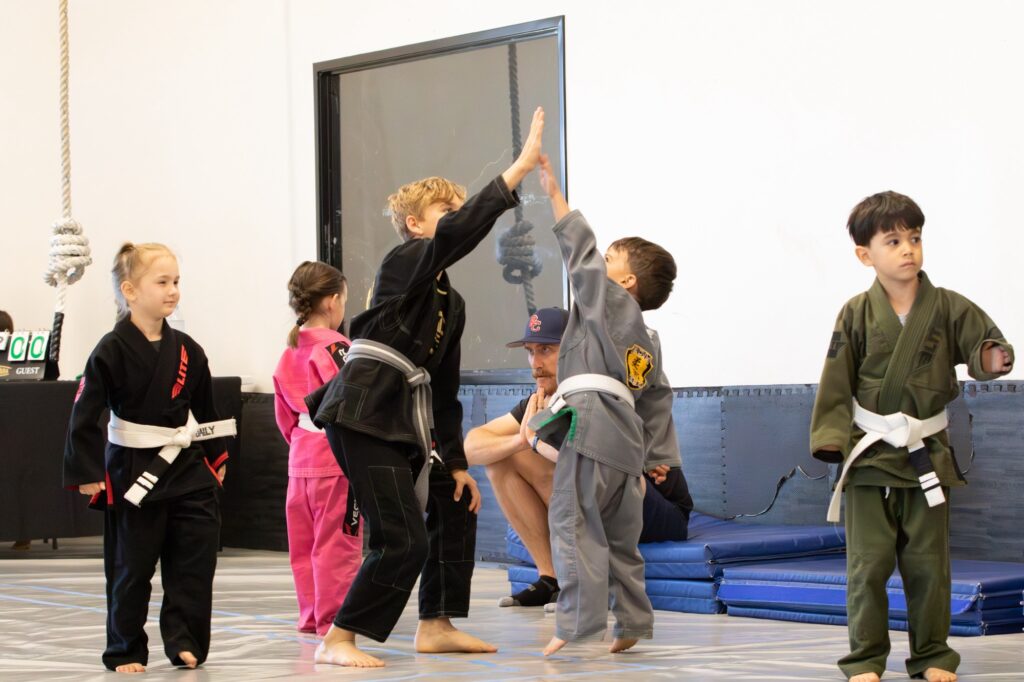The journey of learning Brazilian Jiu-Jitsu (BJJ) is often likened to a transformative path, one that builds not just physical prowess but also mental and emotional strength. As practitioners navigate the complexities of this martial art, they inadvertently develop key leadership skills that translate seamlessly into everyday life. Here’s how we foster leadership qualities at El Dorado Hills Jiu Jitsu.

- Resilience and Perseverance
In BJJ, every practitioner experiences moments of defeat and frustration. Whether it’s being caught in a chokehold or struggling to master a technique, the mat humbles everyone. This resilience to keep going despite setbacks is a cornerstone of effective leadership. Leaders often face challenges that test their patience and resolve. Jiu-Jitsu teaches them to persevere, adapt, and eventually overcome obstacles, instilling a mindset that views failure as a stepping stone rather than a roadblock.
- Humility and Confidence
BJJ is a unique blend of humility and confidence. On the mat, there is always someone better, and this reality keeps practitioners grounded. This humility is critical for leaders who need to stay open to feedback and continuous improvement. At the same time, successfully executing techniques and progressing through ranks builds confidence. Leaders must balance humility with the confidence to make decisions and inspire others, a balance finely tuned through Jiu-Jitsu training.
- Problem-Solving Skills
Each roll (sparring session) in Jiu-Jitsu is a dynamic puzzle. Practitioners must constantly assess their position, anticipate their opponent’s moves, and react accordingly. This environment sharpens analytical and strategic thinking. Leaders benefit from this enhanced problem-solving ability, enabling them to navigate complex situations, devise strategies, and make informed decisions under pressure.

- Communication and Interpersonal Skills
Effective communication is vital in BJJ. Whether asking for advice, giving feedback, or coordinating with a training partner, clear and respectful communication is a must. Leaders need these skills to build strong teams, resolve conflicts, and foster a positive work environment. The respectful culture of Jiu-Jitsu, where everyone learns from each other, directly translates to a collaborative and inclusive leadership style.
- Empathy and Emotional Intelligence
Jiu-Jitsu cultivates empathy as practitioners often experience both dominant and vulnerable positions. Understanding and managing one’s emotions and empathizing with others’ perspectives are critical aspects of emotional intelligence. Leaders with high emotional intelligence can build stronger relationships, manage stress, and create a supportive atmosphere for their teams.
- Discipline and Time Management
Consistency and discipline are essential to progress in Jiu-Jitsu. Regular training requires time management and prioritization, skills that are equally important in leadership. Leaders must balance various responsibilities, set goals, and maintain focus on long-term objectives. The disciplined approach learned through Jiu-Jitsu helps leaders stay organized and productive.
- Building a Growth Mindset
Jiu-Jitsu is a never-ending journey of learning and self-improvement. Practitioners embrace the process of continuous learning, understanding that mastery is a lifelong pursuit. This growth mindset is invaluable for leaders who need to adapt to changing circumstances and encourage innovation within their teams. A leader who embodies a growth mindset inspires others to embrace challenges and view setbacks as opportunities for growth.

Learning Jiu-Jitsu at EDHBJJ is much more than acquiring self-defense techniques; it’s a holistic practice that shapes character and cultivates leadership skills. From resilience to empathy, the principles and experiences gained on the mat foster qualities that make effective and inspiring leaders. As you tie your belt and step onto the mat, remember that each roll is not just a test of physical skill but a step towards becoming a better leader.
